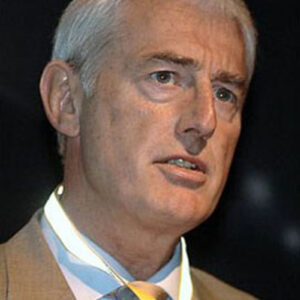
Professor M. John Chapman (Co-Chair)
Disclosure details
Research funding from Amgen, Kowa and Pfizer, and honoraria for speakers’ bureau activities and consultancy from Amarin, Amgen, AstraZeneca, Daiichi-Sankyo, MSD, Novartis, Sanofi, Servier, Regeneron and Pfizer.Research Professor, Medical Faculty of Sorbonne University and Director Emeritus of the National Institute for Health and Medical Research (INSERM) at the Pitié-Salpêtrière University Hospital, Paris, France
Professor Chapman is a Past-President of the French Atherosclerosis Society, Past-President of the European Atherosclerosis Society (EAS), an Emeritus Fellow of the European Society of Cardiology (ESC), and an ESC/EAS Task Force member on Guidelines for the Management of Dyslipidaemia. He was initially awarded his BSc (Hons) degree in biomedical sciences at the University of Aberdeen, Scotland, and subsequently his PhD degree in the same field at the Middlesex Hospital Medical School, University of London. The University of London conferred the Doctor of Science degree on Professor Chapman in 2000 for his distinguished contributions to lipoprotein biology. He undertook Post-Doctoral studies as a Fellow of the National Institutes of Health at the Cardiovascular Research Institute, University of California Medical Center in San Francisco, USA, and subsequently at the Gladstone Institute for Cardiovascular Disease in the same city. He was privileged to undertake a post-doctoral training period in the laboratory of the Nobel Prize Laureates, Profs J.L. Goldstein and M.S. Brown, at the Southwestern Medical School, University of Texas in Dallas.
As President of EAS from 2009 to 2013, he actively supported the development of new Joint Guidelines for the Management of Dyslipidemia with the European Society of Cardiology initially launched in 2011 and revised in 2016 and 2019. As Co-Chair of the EAS Consensus Panels, he spearheaded initiatives on Lipoprotein Lp(a) and on atherogenic High Triglyceride / Low HDL dyslipidemia as major cardiovascular risk factors, on the underdiagnosis and undertreatment of heterozygous familial hypercholesterolemia (FH), on homozygous FH, on FH in children and adolescents with emphasis on optimal detection and treatment, on the Genetics of Hypertriglyceridemic states, and on plant sterols and stanols in the management of dyslipidemia and prevention of cardiovascular disease. The most recent EAS Consensus papers have focussed on intolerance to statin therapy and notably statin-associated muscle symptoms, on the causality of LDL in the pathophysiology of atherosclerotic cardiovascular disease, and on the metabolism and atherogenicity of remnant particles.
Laureate of several awards including the International Society of Atherosclerosis (ISA) Distinguished Career Award, the 2015 EuroFedLipid Prize and the 2015 ISA Antonio Gotto Jr Award in Atherosclerosis Research, he is Co-Chair of the non-profit PCSK9 Education and Research Forum and of the Triglyceride Education and Research Forum. Professor Chapman is Associate European Editor of “Pharmacology and Therapeutics”, and an Editorial Board member of “Arteriosclerosis, Thrombosis, and Vascular Biology”, the “Journal of Lipid Research” and “Atherosclerosis”.
Major areas of Professor Chapman’s research interests are: (i) the metabolism, structure and function of apoB-containing lipoproteins, notably VLDL, their remnants and LDL. This focus is complemented by investigation of the role of these lipoproteins in the pathophysiology of atherosclerotic cardiovascular disease and its thromboembolic complications, (ii) the structure, metabolism and pathophysiology of lipoprotein(a), (iii) the metabolism, function and dysfunction of HDL and its subfractions in relation to components of the proteome and lipidome, (iv) the pharmacological modulation of atherogenic dyslipidemia with a view to prevention of ASCVD, and (v) development of innovative therapeutics for reduction of cardiovascular risk. He has authored in excess of 500 publications in international peer-reviewed journals, and is co-author of a book entitled ‘HDL: Structure, Metabolism, Function and Therapeutics’. In 2020, 2021 and 2022, John was nominated by Clarivate Analytics as a highly cited researcher, his citations placing him in the top 0.01% of researchers worldwide.
Professor Chapman has presented plenary conferences worldwide as part of his dedication to international educational initiatives in lipoprotein biology and therapeutics at their interface with the pathophysiology of atherosclerotic cardiovascular disease.




